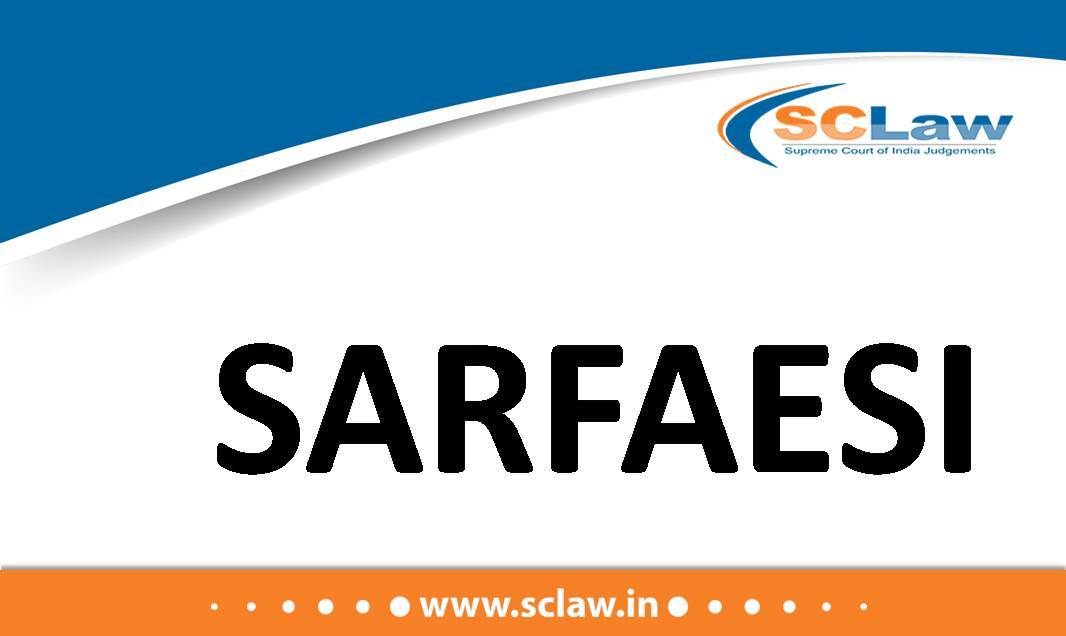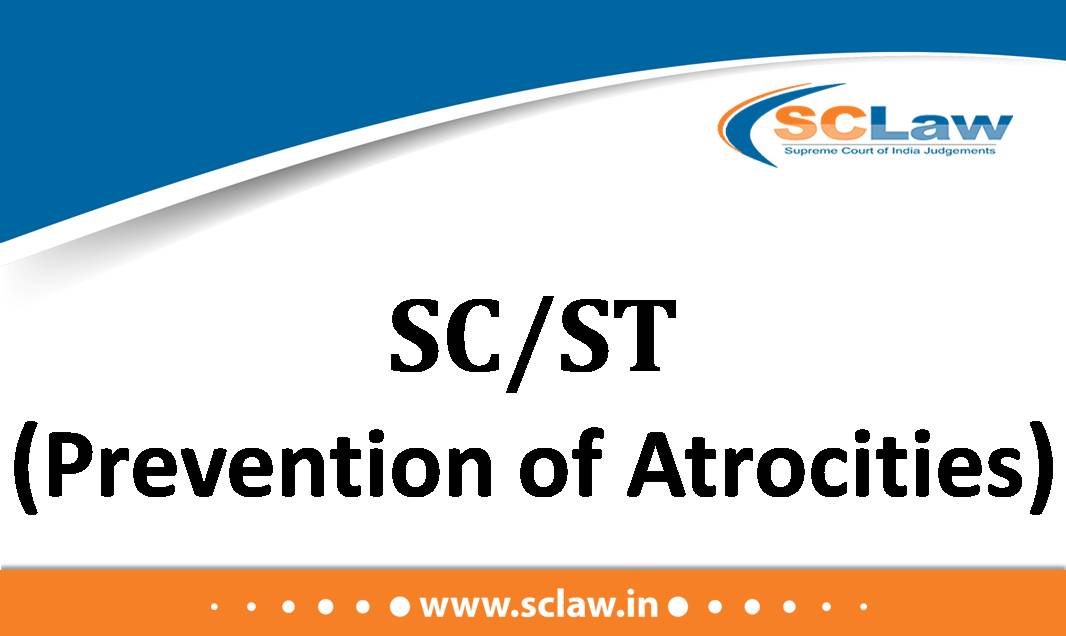HELD the borrower can take the benefit of the amount received by the creditor in an auction sale only if he unequivocally accepts the sale. In a case where the borrower also challenges the auction sale and does not accept the same and also challenges the steps taken under Section 13(2)/13(4) of the SARFAESI Act with respect to secured assets, the borrower has to deposit 50% of the amount claimed by the secured creditor along with interest as per section 2(g) of the Act 1993 and as per section 2(g), “debt” means any liability inclusive of interest which is claimed as due from any person.
SUPREME COURT OF INDIA DIVISION BENCH M/S SIDHA NEELKANTH PAPER INDUSTRIES PRIVATE LIMITED AND ANOTHER — Appellant Vs. PRUDENT ARC LIMITED AND OTHERS — Respondent ( Before : M.R. Shah…
Period of parole – Purpose of considering actual imprisonment, the period of parole is to be excluded.
SUPREME COURT OF INDIA DIVISION BENCH ROHAN DHUNGAT ETC. — Appellant Vs. THE STATE OF GOA AND OTHERS ETC. — Respondent ( Before : M.R. Shah and C.T. Ravikumar, JJ.…
HELD a ‘priority’ conferred / provided under Section 26E of the SARFAESI Act would prevail over the recovery mechanism of the Micro, Small and Medium Enterprises Development Act, 2006 (MSMED Act).
SUPREME COURT OF INDIA DIVISION BENCH KOTAK MAHINDRA BANK LIMITED — Appellant Vs. GIRNAR CORRUGATORS PVT. LTD. AND OTHERS — Respondent ( Before : M.R. Shah and Krishna Murari, JJ.…
None of the ingredients of Sections 3(1)(v) and (va) of the Scheduled Castes and the Scheduled Tribes (Prevention of Atrocities) Act, 1989 are made out and/ or satisfied – Criminal proceedings quashed – Appeal allowed.
SUPREME COURT OF INDIA DIVISION BENCH B. VENKATESWARAN AND OTHERS — Appellant Vs. P. BAKTHAVATCHALAM — Respondent ( Before : M.R. Shah and Krishna Murari, JJ. ) Criminal Appeal No.…
(SARFAESI) – Section 18 – Pre-deposit – Whether, while calculating the amount to be deposited as pre-deposit under Section 18 of the SARFAESI Act, 50% of which amount the borrower is required to deposit as pre-deposit? – in a case where both are under challenge, namely, steps taken under Section 13(4) against the secured assets and also the auction sale of the secured assets, in that case, the “debt due” shall mean any liability (inclusive of interest) which is claimed as due from any person, whichever is higher.
SUPREME COURT OF INDIA DIVISION BENCH M/S SIDHA NEELKANTH PAPER INDUSTRIES PRIVATE LIMITED AND ANOTHER — Appellant Vs. PRUDENT ARC LIMITED AND OTHERS — Respondent ( Before : M.R. Shah…
The Courts are meant to do justice and cannot compel a person to do something which was impossible for him to do – It is directed that the payment of Rs.1,24,28,500/- already deposited by the appellant be appropriated towards settlement dues under “Sabka Vishwas (Legacy Dispute Resolution) Scheme, 2019” and the appellant be issued discharge certificate.
SUPREME COURT OF INDIA DIVISION BENCH M/S. SHEKHAR RESORTS LIMITED (UNIT HOTEL ORIENT TAJ) — Appellant Vs. UNION OF INDIA AND OTHERS — Respondent ( Before : M. R. Shah…
Held plaintiff filed the suit for specific performance in which it was specifically averred that he was ready and willing to perform the agreement dated 13.03.2007. In his deposition, the plaintiff specifically stated that he was ready and willing to perform his obligations under the agreement. He further stated that he approached the defendant in the month of June, 2007 and again in July, 2007 with the balance sale consideration. Order of trial court restored
SUPREME COURT OF INDIA DIVISION BENCH BASAVARAJ — Appellant Vs. PADMAVATHI AND ANOTHERR — Respondent ( Before : M. R. Shah and B.V. Nagarathna, JJ. ) Civil Appeal Nos. 8962-8963…
Limitation Act, 1963 – Section 5 – Insolvency and Bankruptcy Code, 2016 – Section 9 – Sick Industrial Companies (Special Provisions) Act, 1985 – Sections 22(1) and 22(5) – Application under Section 9 of IBC – – in accordance with the factual position obtained in any particular case viz., the period of delay and the period covered by suspension of right under Section 22 (1), SICA etc., the question of condonation of delay has to be considered lest it will result in injustice as the party was statutorily prevented from initiating action against the industrial company concerned.
SUPREME COURT OF INDIA DIVISION BENCH SABARMATI GAS LIMITED — Appellant Vs. SHAH ALLOYS LIMITED — Respondent ( Before : Ajay Rastogi and C.T. Ravikumar, JJ. ) Civil Appeal No.…
What is the scope and ambit of S 111A of the 1956 Companies Act, as amended by S 59 of the 2013 Act, to rectify the register of members? – Held, Rectificatory jurisdiction under Section 59 of the 2013 Act is summary in nature and not intended to be exercised where there are contested facts and disputed questions
SUPREME COURT OF INDIA DIVISION BENCH IFB AGRO INDUSTRIES LIMITED — Appellant Vs. SICGIL INDIA LIMITED AND OTHERS — Respondent ( Before : A.S. Bopanna and Pamidighantam Sri Narasimha, JJ.…
Government Contract and Tender – Government contracts involve expenditure out of the public exchequer – Since they involve payment out of the public exchequer, the moneys expended must not be spent arbitrarily – State does not have absolute discretion while spending public money – All government actions including government contracts awarded by the State must be tested on the touchstone of Article 14
SUPREME COURT OF INDIA DIVISION BENCH M/S INDIAN MEDICINES PHARMACEUTICALS CORPORATION LIMITED — Appellant Vs. KERALA AYURVEDIC CO OPERATIVE SOCIETY LIMITED AND OTHERS — Respondent ( Before : Dr. Dhananjaya…















